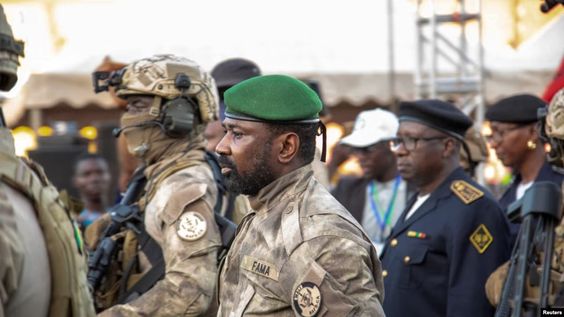Africa
Voting in a referendum by Malians opens the door to elections

Malians cast their votes on Sunday in a referendum to alter the country’s constitution, which the military junta in power and regional powers claim will open the door to elections and the restoration of civilian rule.
Under pressure from the West African regional grouping, the Economic Community Of West Africa States, the junta, which took control in coups in 2020 and 2021, pledged to hold the referendum as part of a transition to democracy.
8.4 million people are anticipated to cast ballots. A 35-year-old medical assistant named Kollet Sangare was among the first voters at a voting place in the capital where few had gathered early on Sunday.
He said, “I’m hoping the team I voted for wins.
The committee’s draft of the constitution includes some controversial revisions, some of which proponents claim will strengthen frail democratic institutions and others who claim will give the president too much authority.
However, given that Islamist extremists are speeding up their attacks, regional organizations and the UN consider the vote as a crucial test of the junta’s commitment to the transition and to holding a national democratic process.
In a televised address on Friday, interim president Assimi Goita stated, “With this project, we are betting on the future of our state, the restoration of its authority, and the regained trust between institutions and citizens.”
Supporters of the draft hope it will strengthen democracy and address rifts by integrating modifications that have been suggested in previous unsuccessful attempts to amend the constitution, such as the introduction of a second parliamentary chamber to increase representation from all of Mali.
Mali would comply with a West African Economic and Monetary Union rule from 2000 with the proposed creation of a special court of auditors for public spending.
However, certain opposition parties, pro-democracy organizations, and supporters of the “No” vote argue that the junta and other non-democratically elected institutions have no business overseeing such a significant constitutional reform.
They assert that the proposed constitution gives the president undue power, including control over the legislative process.
“I support a constitutional amendment, but not this referendum. We should have done better, according to lawyer Fousseini Ag Yehia, who spoke on Saturday in the capital Bamako about the credibility of the actors and the process.
Armed groups in northern Mali that took part in the shaky 2015 Algiers peace agreement have also called for a boycott of the referendum, claiming it was “not sufficiently inclusive.”
The former Kidal, in the north, representative Ahmoudane Ag Ikmasse said there was no vote on Sunday.
“I’ve just driven across the city, no vote, nothing at all, and that’s how it is in the localities around Kidal,” he said over the phone to Reuters.
Within 72 hours following the election, preliminary results are anticipated. The next presidential election will take place in February 2024.
Reuters
